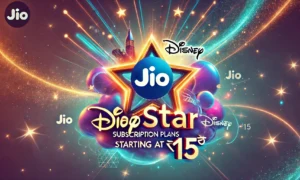Introduction
In the dynamic business landscape of 2024, organizations are continuously striving to optimize their human resources (HR) processes to stay competitive. One company that has positioned itself at the forefront of this evolution is Workday, a leader in enterprise cloud applications for finance and human resources. Over the last decade, Workday has built a strong reputation for transforming traditional HR processes by integrating cutting-edge technologies such as Artificial Intelligence (AI) and Machine Learning (ML) into talent acquisition, employee experience, and retention strategies.
As businesses face the dual challenges of managing a more diverse, global workforce and navigating the rapid changes brought on by digital transformation, Workday’s intelligent solutions provide actionable insights, enhance decision-making, and streamline HR processes. These innovations not only help organizations acquire the right talent but also improve the overall employee experience and reduce turnover.
This case study explores how Workday is leveraging AI and machine learning to optimize HR operations. It will focus on three core areas—talent acquisition, employee experience, and employee retention—demonstrating how the integration of AI-driven technologies is reshaping HR management practices and delivering measurable business outcomes.
The Need for AI and Machine Learning in HR
Transforming Traditional HR Practices
Historically, HR functions like recruitment, onboarding, and employee development have been heavily reliant on manual processes, subjective decision-making, and limited data analysis. Traditional HR practices often involve reviewing resumes manually, conducting interviews based on personal biases, and making decisions based on outdated or incomplete data. As a result, organizations often struggle to hire the right talent, ensure a positive employee experience, and retain top performers.
However, with the rise of AI and machine learning, HR processes can now be automated, personalized, and data-driven. These technologies provide HR professionals with insights that were previously impossible to obtain, such as predicting employee turnover, identifying potential high-performers, and tailoring personalized learning and development plans. By integrating AI and ML into the HR ecosystem, Workday aims to help organizations make smarter, faster, and more effective decisions, thereby optimizing the employee lifecycle from recruitment through to retention.
The Role of Workday’s AI-Powered Solutions
Workday’s HR suite leverages machine learning, natural language processing, and predictive analytics to automate key HR functions and offer real-time insights. The platform’s AI-driven tools are specifically designed to optimize the entire employee lifecycle, from recruiting and onboarding to performance management and employee engagement.
By using these technologies, Workday not only reduces the administrative burden on HR professionals but also creates a more responsive, personalized, and data-driven experience for employees. This results in a more agile HR function that can address the evolving needs of modern organizations.
Talent Acquisition: Finding the Right Fit with AI
AI-Powered Recruiting and Candidate Screening
In talent acquisition, one of the most challenging tasks for HR teams is identifying the right candidates for open roles, especially when dealing with large volumes of applicants. Traditional recruitment processes often rely on manual resume reviews, phone screenings, and interviews, which can be time-consuming and prone to bias.
Workday has developed AI-powered tools to streamline and enhance this process, making it faster, more accurate, and more objective.
Machine Learning-Based Candidate Matching
Workday’s AI-driven recruitment platform uses machine learning algorithms to match candidates to job openings based on a variety of factors, including skills, experience, and cultural fit. These algorithms continuously learn from the data in the system—such as past hiring decisions and performance outcomes—to improve the accuracy of candidate recommendations over time.
- Skills and Experience Matching: Workday’s machine learning model analyzes both the job description and candidate profiles, automatically ranking applicants based on how well their skills, qualifications, and past experiences align with the job’s requirements.
- Cultural Fit and Soft Skills: The platform also leverages AI to evaluate cultural fit and soft skills, such as communication, leadership, and problem-solving abilities, by analyzing past behavior, performance reviews, and peer feedback. This enables HR teams to select candidates who are not only qualified but also a good match for the company’s values and work environment.
Reducing Bias in Hiring
AI tools in Workday’s platform help reduce unconscious bias in the hiring process. By using data-driven decision-making, the system ensures that candidates are evaluated based on their skills and experience rather than subjective factors. Additionally, Workday has taken steps to make sure that its AI models are designed to avoid perpetuating bias related to gender, race, or other demographic characteristics.
Workday’s commitment to bias-free recruitment ensures that the best candidates are selected based on merit, leading to a more diverse and inclusive workforce.
Automated Candidate Screening and Interviewing
Workday’s AI-powered tools automate the initial stages of the recruitment process by screening resumes and conducting pre-screening interviews with candidates. The AI can evaluate whether a candidate’s qualifications meet the minimum job requirements, allowing HR teams to focus on interviewing only the most suitable candidates.
- Automated Screening: AI scans resumes and application materials for keywords, relevant skills, and past job experience. It filters out unqualified candidates early in the process, reducing the time HR teams spend reviewing resumes manually.
- Chatbots for Screening: Workday integrates AI chatbots into the recruitment process to engage candidates early and gather initial information. These chatbots can also answer common candidate questions and schedule interviews, further streamlining the process.
Talent Pools and Predictive Analytics
AI and machine learning also enable Workday’s platform to build talent pools and predict future hiring needs. The system can identify trends in the skills market and predict when a role will need to be filled based on business growth and attrition patterns. By analyzing historical hiring data, the AI can suggest the best talent sources and strategies for attracting top candidates.
Enhancing Employee Experience with AI-Driven Personalization
Personalized Employee Journeys
The employee experience is a critical factor in retention and performance. As organizations increasingly focus on employee engagement, satisfaction, and development, Workday’s AI-powered solutions help create personalized, data-driven experiences that cater to the needs and preferences of each individual employee.
Personalized Learning and Development
AI plays a central role in Workday Learning, which uses machine learning algorithms to suggest personalized learning paths based on an employee’s role, career goals, and skills gaps. The system continuously adapts to employees’ progress, recommending new training programs or development opportunities as they grow within the organization.
- Skills Gap Identification: By analyzing performance reviews, feedback, and competencies, Workday’s platform identifies skills gaps in employees and recommends the most relevant courses, certifications, or experiences to bridge those gaps.
- Career Pathing: AI-driven insights help employees map out potential career paths within the company. Workday’s Career Hub uses AI to suggest relevant job opportunities within the organization, helping employees visualize their long-term career trajectory.
Employee Engagement and Well-Being
Workday’s AI capabilities also enhance employee engagement and well-being through continuous feedback and sentiment analysis. The platform uses natural language processing (NLP) to analyze employee feedback from surveys, performance reviews, and other communication channels, offering insights into employee sentiment and potential areas of concern.
- Pulse Surveys: Workday’s AI tools conduct pulse surveys to gather real-time feedback from employees, helping organizations monitor employee morale and satisfaction on an ongoing basis.
- Predictive Retention Analytics: AI helps predict potential employee turnover by analyzing patterns in employee engagement, performance, and external factors such as compensation. This enables HR teams to take proactive measures to retain top talent.
Real-Time Performance Management
Workday’s AI-driven performance management system allows for continuous feedback rather than relying solely on annual performance reviews. The platform uses machine learning to analyze employee performance in real-time, providing actionable insights to both managers and employees.
- Real-Time Feedback: Employees can receive feedback from peers and managers instantly, fostering a culture of continuous improvement and open communication.
- Goal Alignment: AI helps employees align their personal goals with organizational objectives, ensuring that their efforts contribute directly to company success. It can suggest new goals based on performance trends and business priorities.
Employee Retention: Reducing Turnover with Predictive Analytics
AI-Powered Retention Strategies
Employee retention is one of the biggest challenges organizations face, especially in industries where talent is scarce. Workday’s AI and machine learning tools help businesses identify at-risk employees and implement retention strategies before it’s too late.
Predictive Turnover Analysis
Workday’s predictive analytics platform uses machine learning to analyze a wide range of factors—such as employee engagement, job satisfaction, compensation, and career progression—to predict which employees are most likely to leave the organization.
- Risk Scoring: The system assigns a “risk score” to employees based on various factors that may indicate dissatisfaction or intent to leave. HR managers can then take action, such as offering career development opportunities, improving compensation packages, or providing better work-life balance.
- Personalized Retention Plans: Based on predictive insights, Workday helps HR teams create personalized retention strategies for employees. This may include tailored learning opportunities, mentorship programs, or specific interventions to address their concerns.
AI-Driven Workforce Planning
Workday’s AI also assists in workforce planning by analyzing trends in turnover, employee performance, and external labor market conditions. This allows organizations to anticipate skill shortages and plan for future talent needs more effectively.
- Scenario Modeling: Workday’s platform can model different workforce scenarios, allowing HR leaders to assess the impact of turnover, hiring needs, and organizational changes on the business.
- Succession Planning: AI-driven tools help organizations identify high-potential employees who can be groomed for leadership roles, ensuring a robust pipeline for key positions.
The Future of AI in HR
As AI and machine learning continue to evolve, Workday is committed to enhancing its HR solutions to further improve talent acquisition, employee experience, and retention. Future developments may include deeper integration with employee wellness programs, more advanced natural language processing capabilities, and the use of AI-driven coaching and mentoring systems. The possibilities for AI in HR are vast, and Workday is well-positioned to lead the way in the next phase of HR innovation.
Conclusion
Workday’s integration of AI and machine learning into HR processes represents a transformative shift in how organizations approach talent acquisition, employee experience, and retention. By leveraging these technologies, businesses can make more data-driven, objective, and personalized decisions that optimize the entire employee lifecycle. From intelligent recruiting tools to real-time performance management and predictive retention strategies, Workday is empowering organizations to build more agile, engaged, and productive workforces.
As the future of work continues to evolve, Workday’s AI-powered HR solutions will play a crucial role in helping organizations stay competitive, adapt to changing workforce dynamics, and ensure they are able to attract, develop, and retain the best talent in the market.
| Aspect | Impact of Workday’s AI-Powered HR Solutions |
|---|---|
| Talent Acquisition | AI-driven candidate matching, automated screening, and reduced bias in hiring processes improve recruitment efficiency and accuracy. |
| Employee Experience | Personalized learning paths, continuous feedback, and tailored career development enhance employee engagement and satisfaction. |
| Retention and Workforce Planning | Predictive analytics and AI-powered retention strategies help reduce turnover and identify high-potential talent for leadership roles. |
| Real-Time Performance Management | Continuous feedback and AI-driven insights help employees and managers align goals, improve performance, and foster a culture of growth. |
| Diversity and Inclusion | AI tools reduce bias in hiring and promote a diverse workforce by evaluating candidates based on objective criteria. |


